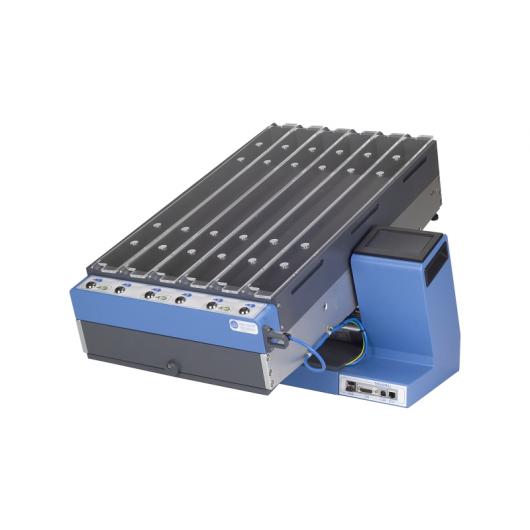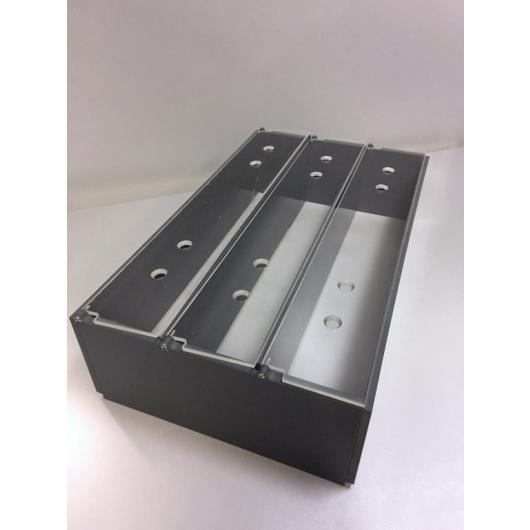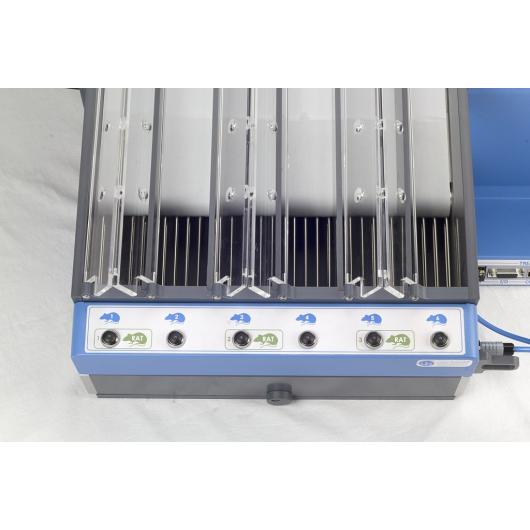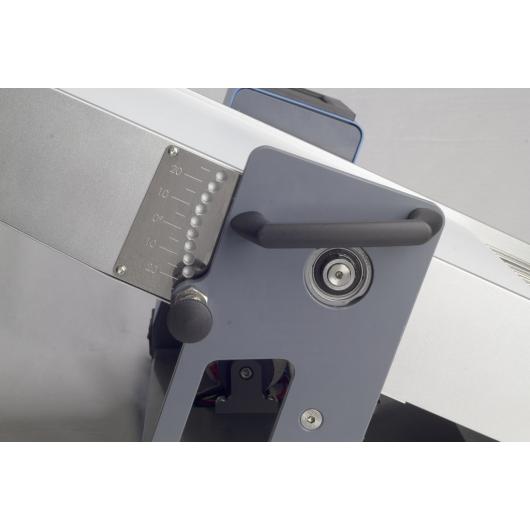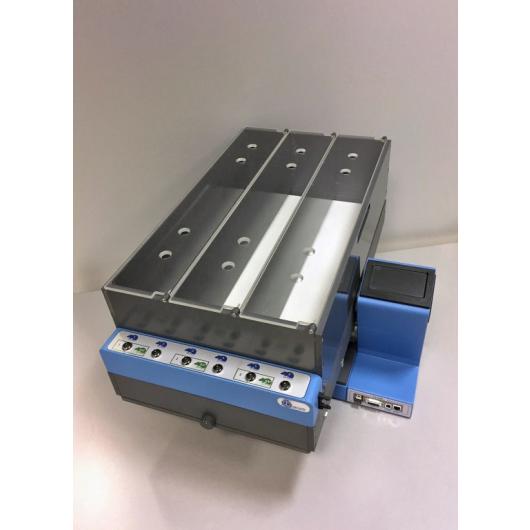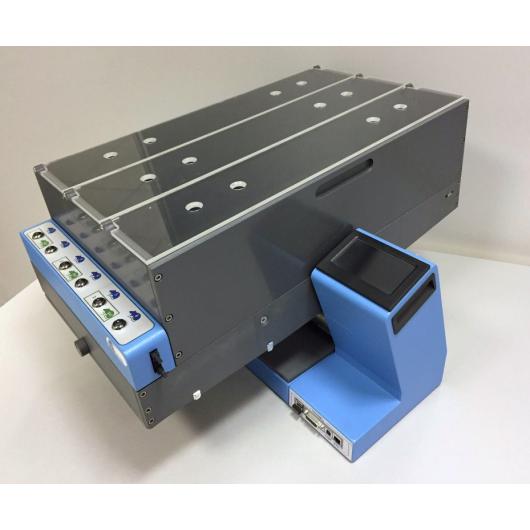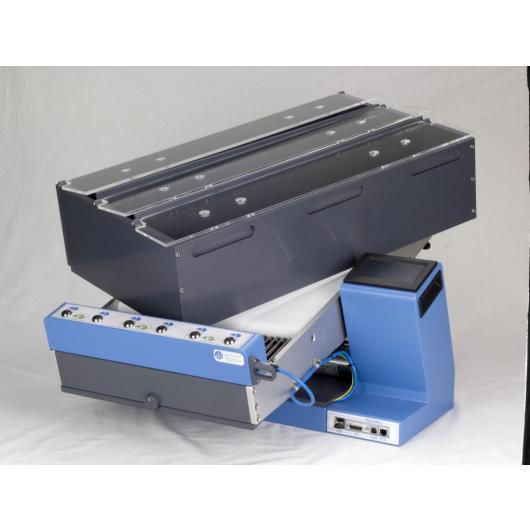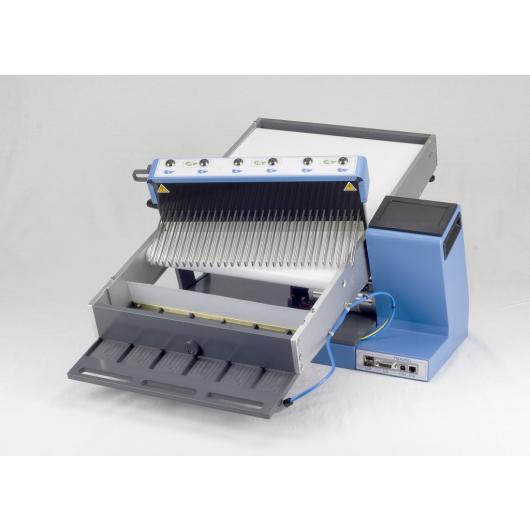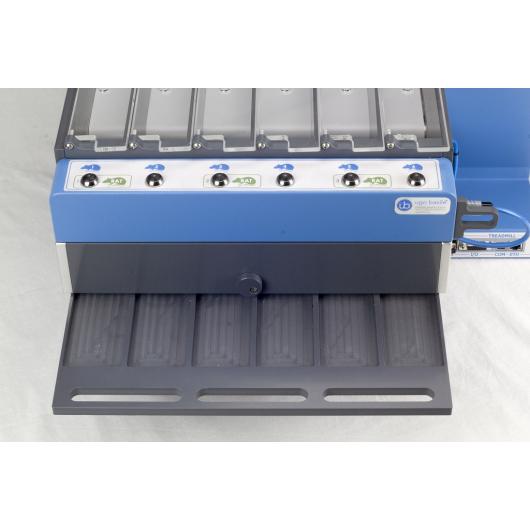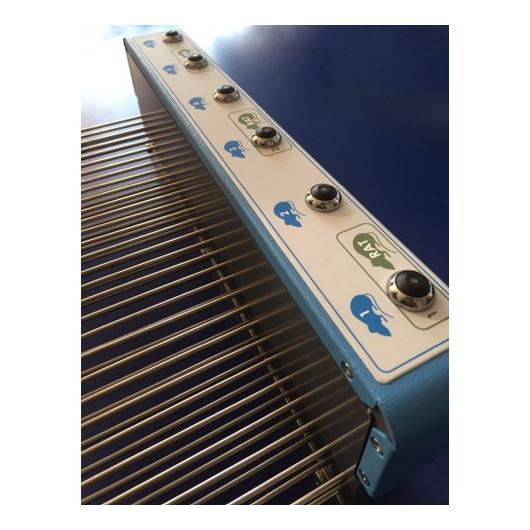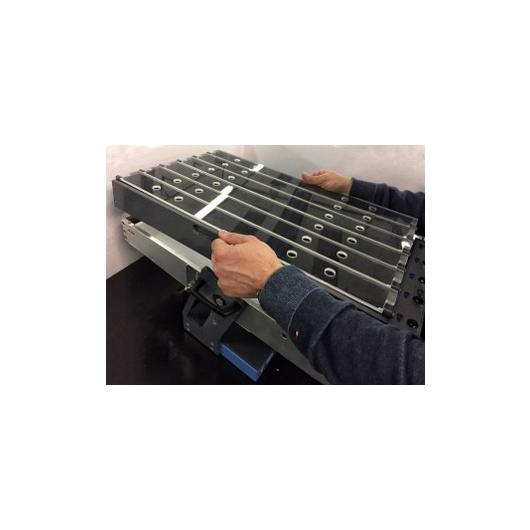










Rodent Treadmill NG with interchangeable lane assembly for rats or mice
Features
- Interchangeable patterned floors and walls
- Walls in either compartment can be altered, by replacing the context kit
- High contrast with light or dark animals
- Specific models and floors for rats or mice
Benefits
- The two compartments differ by tactile stimulation
- The two compartments differ by visual stimulation
- Optimized for Video-Tracking
- Designed for multiple-cage systems
Applications
The CPP paradigm provides information on the rewarding or aversive effects of visible and tactile contextual cues associated with drugs.
This technique has acquired great popularity in research studies involving addiction, being much easier, if compared to drug self-administration procedures.
First, the animal is conditioned to identify one of the two compartments with the drug experience. Then the time spent in each compartments is measured; preference or
aversion to the drug-paired compartment, hence rewarding/aversive properties of drugs, can be easily deducted.
The CPP test only requires the animal to carry out a simple operation (i.e. move from one compartment to the other) to approach or avoid the drug-paired compartment; the animal is expected to spend more time in the drug-paired compartment, if the drug experience produced a positive effect.
- Baclofen Prevents Drug-Induced Reinstatement of Extinguished Nicotine-Seeking Behaviour and Nicotine Place Preference in Rodents L. Fattore et alia, Eur. European Neuropsychopharmacol. 19(7): 487-498, 2009
- Inhibition of Anandamide Hydrolysis by Cyclohexyl Carbamic Acid 3’-Carbamoyl-3-yl Ester (URB597) Reverses Abuse-Related Behavioral and Neuro-chemical Effects of Nicotine in Rats M. Scherma et alia, J. Pharmacol. and Exper. Therap.” 327:482–490, 2008
Special thanks to Prof. Paola Fadda (Department of Pharmacology, University of Cagliari, Italy) for the initial design of the boxes: her valuable comments and suggestions allowed us to keep the focus on the user needs and opinions.

